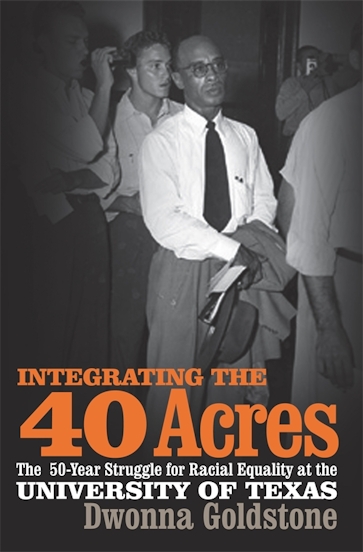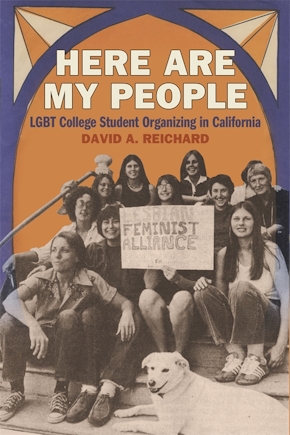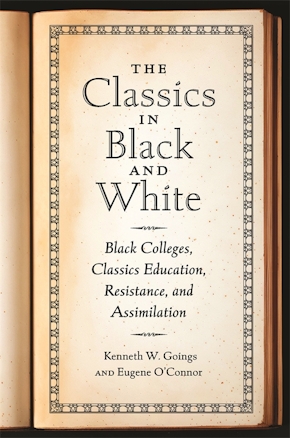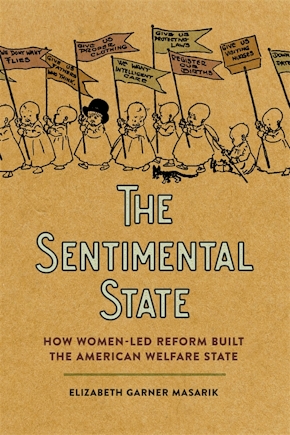Integrating the 40 Acres
The Fifty-Year Struggle for Racial Equality at the University of Texas
Title Details
Pages: 232
Illustrations: 10 b&w photos
Trim size: 6.120in x 9.250in
Formats
Paperback
Pub Date: 01/15/2012
ISBN: 9-780-8203-4085-2
List Price: $27.95
Integrating the 40 Acres
The Fifty-Year Struggle for Racial Equality at the University of Texas
Skip to
- Description
- Reviews
- Awards
You name it, we can't do it. That was how one African American student at the University of Texas at Austin summed up his experiences in a 1960 newspaper article—some ten years after the beginning of court-mandated desegregation at the school. In this first full-length history of the university's desegregation, Dwonna Goldstone examines how, for decades, administrators only gradually undid the most visible signs of formal segregation while putting their greatest efforts into preventing true racial integration. In response to the 1956 Board of Regents decision to admit African American undergraduates, for example, the dean of students and the director of the student activities center stopped scheduling dances to prevent racial intermingling in a social setting.
Goldstone's coverage ranges from the 1950 U.S. Supreme Court ruling that the University of Texas School of Law had to admit Heman Sweatt, an African American, through the 1994 Hopwood v. Texas decision, which ended affirmative action in the state's public institutions of higher education. She draws on oral histories, university documents, and newspaper accounts to detail how the university moved from open discrimination to foot-dragging acceptance to mixed successes in the integration of athletics, classrooms, dormitories, extracurricular activities, and student recruitment. Goldstone incorporates not only the perspectives of university administrators, students, alumni, and donors, but also voices from all sides of the civil rights movement at the local and national level. This instructive story of power, race, money, and politics remains relevant to the modern university and the continuing question about what it means to be integrated.
Goldstone has written a well-researched, thoughtful, and persuasive treatment of the long campaign to integrate the University of Texas at Austin from the 1940s onward. She details in compelling fashion the many ways in which the political leaders of Texas and the officials of the University sought to frustrate efforts from students and faculty for social justice and equality toward black citizens. Her book represents an important contribution toward understanding why the battle over the University of Texas and its racist policies was so central to the civil rights struggle in that state.
—Lewis L. Gould, Emeritus Professor of History at the University of Texas at Austin
Goldstone's comprehensive examination of the history of racial segregation at the University of Texas at Austin, fills a void that has existed in desegregation studies at southern universities. Her narrative is filled with insightful community portraits while also reflecting the external influences of the burgeoning civil rights movement. Well researched and carefully written, this book will be an important addition to the literature on the subject.
—Robert A. Pratt, author of We Shall Not Be Moved: The Desegregation of the University of Georgia
Goldstone's Integrating the 40 Acres is excellent reading for anyone who is interested in the civil rights movement, race relations, ethnic studies, and discriminatory practices in higher education. Goldstone has done a superb job in researching the struggles and obstacles in the integration of African Americans into the University of Texas at Austin.
—Journal of American Ethnic History
Winner
Coral Horton Tullis Memorial Prize, Texas State Historical Association



